Jules Bara | |
|---|---|
 Jules Bara | |
| Born | 23 August 1835 |
| Died | 26 June 1900 (aged 64) Brussels, Belgium |
| Nationality | Belgian |
| Occupation(s) | statesman, politician |
Jules Bara (23 August 1835 – 26 June 1900) was a Belgian statesman and liberal politician.
Jules Bara | |
|---|---|
 Jules Bara | |
| Born | 23 August 1835 |
| Died | 26 June 1900 (aged 64) Brussels, Belgium |
| Nationality | Belgian |
| Occupation(s) | statesman, politician |
Jules Bara (23 August 1835 – 26 June 1900) was a Belgian statesman and liberal politician.
He was born in Tournai and pursued the study of law in his native town, showing remarkable intellectual gifts and a fine power of oratory.
Shortly after he had begun his professional practice he was summoned to be professor of law at the Université Libre de Bruxelles and established his reputation by a treatise on the relations of church and state, the Essai sur les rapports de l'etat et des religions au point de vue constitutionnel (1859). He succeeded Tesch as Minister of Justice in 1865, being appointed to that position by the King. In line with his extremely Liberal tendencies, he attempted, in 1868, to bring about the abolition of capital punishment, but failed because of a powerful opposition in the Senate. After the failure of the Frère-Orban cabinet in 1870 Bara reëntered the Chamber of Representatives and by his great power of invective caused the resignation of the Clerical Ministry of D'Anethau in 1871 and helped to overthrow the Ministry of Malou in 1878. Bara became once more Minister of Justice under Frère-Orban, resigning in 1884 after the overwhelming defeat of the Liberals at the polls. From 1884 to 1894 he was leader of the Opposition in the Lower Chamber, but in the latter year failed of reëlection, entering the Senate soon afterward.
He died in Brussels, 26 June 1900.
He was a Mason, raised in 1859 in the lodge Les Vrais Amis de l'Union et du Progrès from Bruxelles.
{{cite encyclopedia}}: Missing or empty |title= (help) ![]() Media related to Jules Bara at Wikimedia Commons
Media related to Jules Bara at Wikimedia Commons
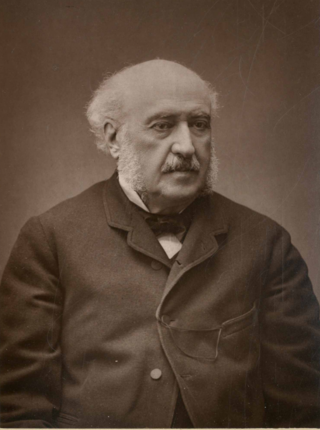
Jules François Simon was a French statesman and philosopher, and one of the leaders of the Moderate Republicans in the Third French Republic.
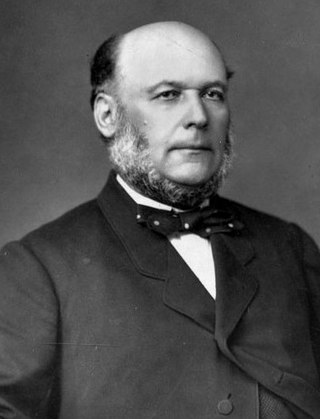
François Judith Paul Grévy, known as Jules Grévy, was a French lawyer and politician who served as President of France from 1879 to 1887. He was a leader of the Moderate Republicans, and given that his predecessors were monarchists who tried without success to restore the French monarchy, Grévy is considered the first real republican president of France. During Grevy's presidency from 1879 to 1887, according to David Bell, there was a disunity among his cabinets. Only one survived more than a year. Grevy paid attention chiefly to defense, internal order, and foreign relations. Critics argue that Grevy's confusing approach to appointments set a bad precedent for handling crises. Grevy's son-in-law was implicated in a corruption scandal in 1887, and Grevy had to resign after exhausting the pool of willing politicians to form a fresh government.

Pierre Marie René Ernest Waldeck-Rousseau was a French Republican politician who served for three years as the Prime Minister of France.

Eugène Rouher was a French statesman of the Second Empire.
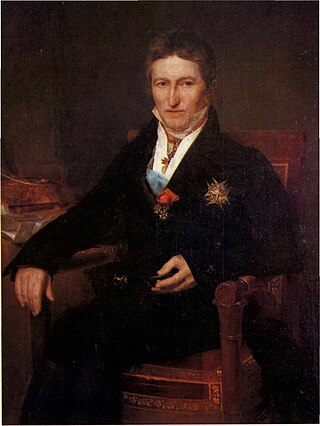
Jean-Baptiste Guillaume Joseph Marie Anne Séraphin, 1st Count of Villèle, better known simply as Joseph de Villèle, was a French statesman. Several times Prime minister, he was a leader of the Ultra-royalist faction during the Bourbon Restoration.

Jean Victor Duruy was a French historian and statesman.

Jacques Laffitte was a leading French banker, governor of the Bank of France (1814–1820) and liberal member of the Chamber of Deputies during the Bourbon Restoration and July Monarchy. He was an important figure in the development of new banking techniques during the early stages of industrialization in France. In politics, he played a decisive role during the Revolution of 1830 that brought Louis-Philippe, the duc d'Orléans, to the throne, replacing the unpopular Bourbon king Charles X.

Jules Edouard Xavier Malou was a Belgian statesman, a leader of the clerical party.
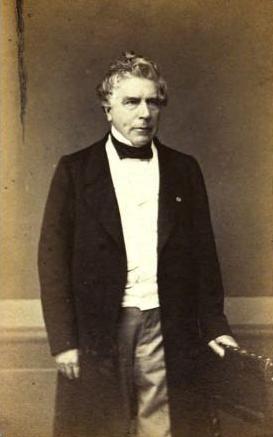
Charles Latour Rogier was a Belgian liberal statesman and a leader in the Belgian Revolution of 1830. He served as the prime minister of Belgium on two occasions: from 1847 to 1852, and again from 1857 to 1868.

Hubert Joseph Walthère Frère-Orban was a Belgian liberal statesman.
The Liberal Party was a Belgian political party that existed from 1846 until 1961, when it became the Party for Freedom and Progress, Partij voor Vrijheid en Vooruitgang/Parti de la Liberté et du Progrès or PVV-PLP, under the leadership of Omer Vanaudenhove.

Olivier Émile Ollivier was a French statesman. Starting as an avid republican opposed to Emperor Napoleon III, he pushed the Emperor toward liberal reforms and in turn came increasingly into Napoleon's grip. He entered the cabinet and was the prime minister when Napoleon fell.

Clément Armand Fallières was a French statesman who was President of France from 1906 to 1913.
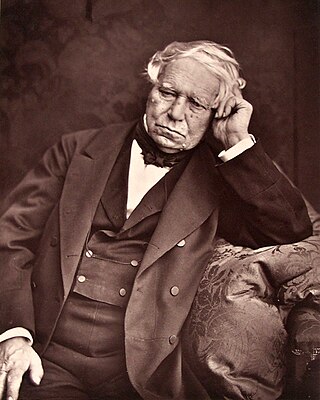
Jules Armand Stanislas Dufaure was a French statesman who served 3 non-consecutive terms as Prime Minister of France.

Legislative elections were held in Belgium in June and July 1884, for partial Chamber and full Senate elections respectively. Voter turnout was 79.1% in the Chamber of Representatives elections, although only 69,276 people were eligible to vote.
The following lists events that happened during 1884 in the Kingdom of Belgium.

Alphonse Lambert Joseph Fernand Cocq was a Belgian Liberal politician who served as Minister of Justice.
Events in the year 1870 in Belgium.
Prosper de Haulleville (1830–1898), who also wrote under the pen name Félix de Breux, was a Belgian journalist and author who was influential on his country's adoption of universal manhood suffrage with plural voting and proportional representation.
The following lists events that happened during 1878 in the Kingdom of Belgium.